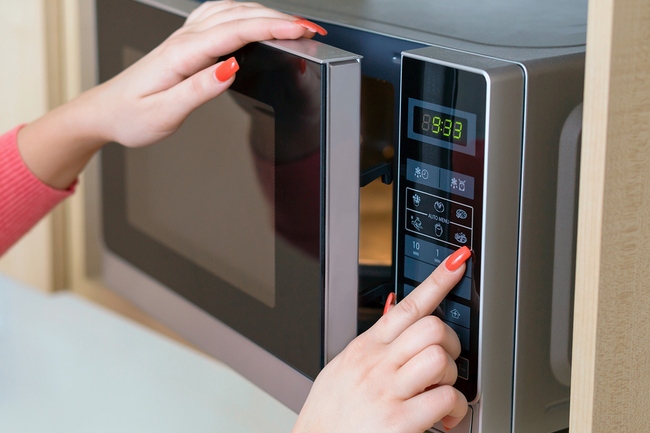- Make It Yourself Lavender Heart-Shaped Bath Bombs!
- 20 Things You Never Knew About “Down There”
- 12 Best Foods For Those Suffering From Arthritis Pain
- 12 Personal Hygiene Mistakes Almost Everyone Makes (Mom Never Told You About #4!)
- 15 Medicinal Plants And Herbs From The Cherokee People
- 12 Mind-Blowing Benefits Of Drinking Coconut Water During Pregnancy
- 12 Outstanding Winter Foods That Won’t Fatten You Up Like A Christmas Turkey
The Heart And Health Risks Of Microwaving Food

Photo credit: bigstock
Microwave Ovens And Your Health
There has been much debate about whether cooking using a microwave is harmful to your health. Some scientists and researchers claim there is no risk at all, and that those who suggest otherwise are peddling conspiracy theories.
Other scientists point to studies that appear to back up their claims that microwave cooking can negatively affect the heart and other aspects of human health.
Microwave ovens emit their radiation into the food at a frequency of 2.4 gigahertz. A study conducted at Trent University found that such frequencies could change heart rate variability. These levels, according to Medical Daily, are “within federal safety guidelines,” but the article also warns that consuming food cooked with such microwave frequencies can cause some people to experience chest pains and abnormal heart beats. If you do experience these symptoms, stop eating microwaved food. One other sensible precaution might be to not stand in front of the oven while your food is being prepared, thus reducing any chance of direct exposure to the microwave radiation.
There is also research suggesting that microwave cooking actually destroys the nutritional content of food. Some doctors, like Dr. Joseph Mercola, argue that the very method by which microwaves increase molecular vibration, known as dialectic heating, alters the nutrients within the food to the point where they are no longer as beneficial to the body as they might normally be.
The Journal of Agricultural and Food Chemistry published a study claiming that microwave cooking seriously damaged the nutritional content of foods like milk and meat. Researchers claimed that they found a 30 to 40 percent reduction in levels of vitamin B-12 in pork and beef that had been prepared using a microwave oven. It wasn’t that the vitamin was “deleted” from the food per se, but rather damaged in such a way that it was considered “inactive” and could no longer be used by the body.
Studies in Russia and Germany appear to indicate that microwaved foods contain higher levels of carcinogenic compounds. There is also a known risk of increased bisphenol-A (BPA) contamination in microwaved foods that were heated in plastic containers. BPA is used in many plastic materials, and heat has been shown to allow these toxic chemicals to seep into the food.
READ ALSO: 11 Tips To Protect Yourself From Dangerous Cell Phone Radiation
Does this mean you should grab your microwave oven and throw it out the window right now? No. But perhaps it isn’t wise to make microwave cooking your first choice. If you have the option, choose a different cooking method to prepare your meals. It might take longer, but the research mentioned here suggests it might be safer. If you must use a microwave, be sure to use a glass container, as it won’t contain any BPA.
References:

































